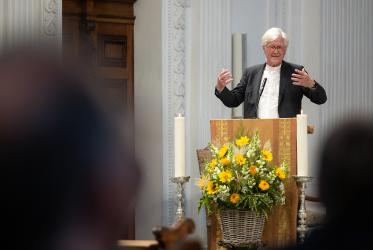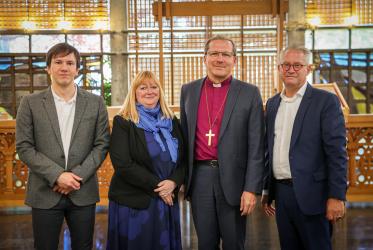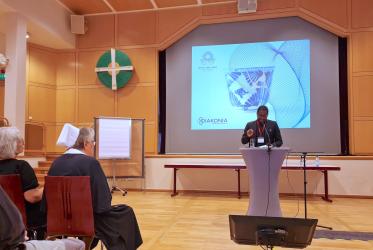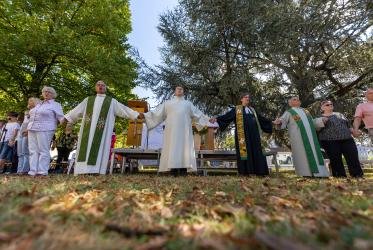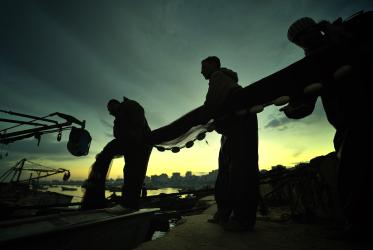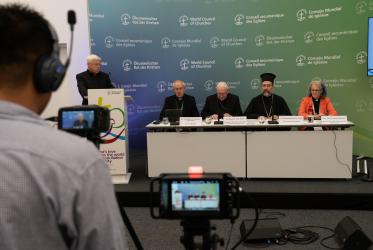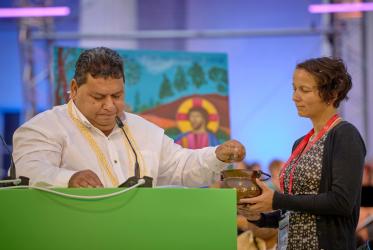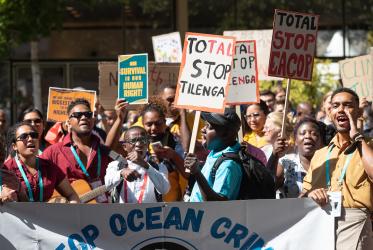Displaying 1 - 20 of 161
10 October 2023
WCC hosts visitors from Finland, Germany, and Sweden
29 September 2023
German Protestant Kirchentag opens in Nuremberg
09 June 2023
Christ’s Love (Re)moves Borders – GETI 2022 in images
13 September 2022
Water as a divine gift, and justice issue
08 September 2022
Ukraine: Responding to humanitarian need
08 September 2022
The earth is the LORD's… and the Lord is claiming it back
07 September 2022
Promoting human dignity through art
06 September 2022
Indigenous women struggle for identity in Asia and beyond
05 September 2022
Multifaith advocacy for the climate: Not really much time left
04 September 2022
